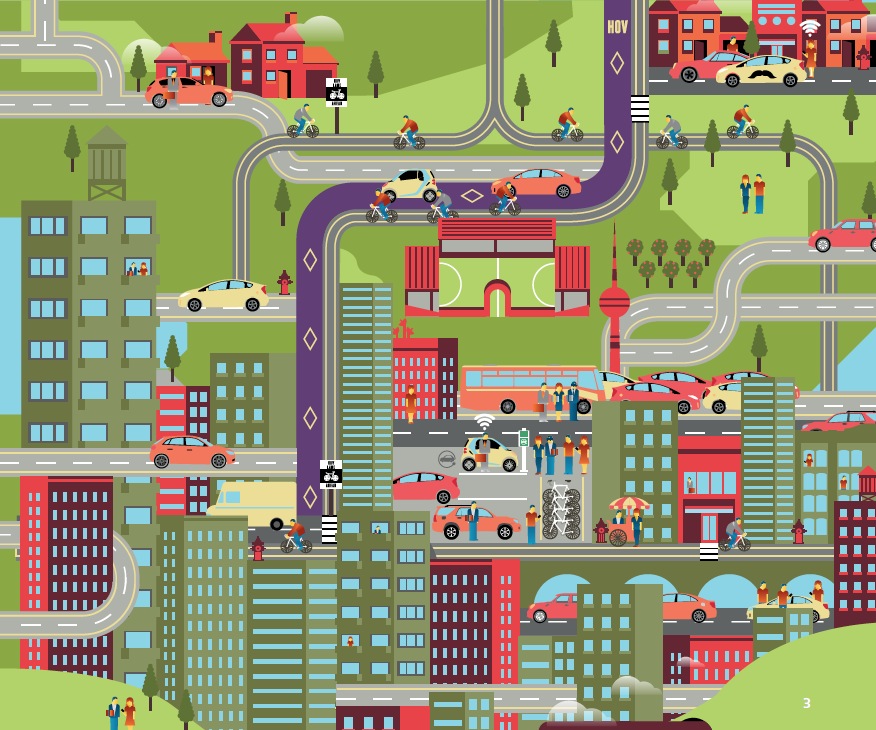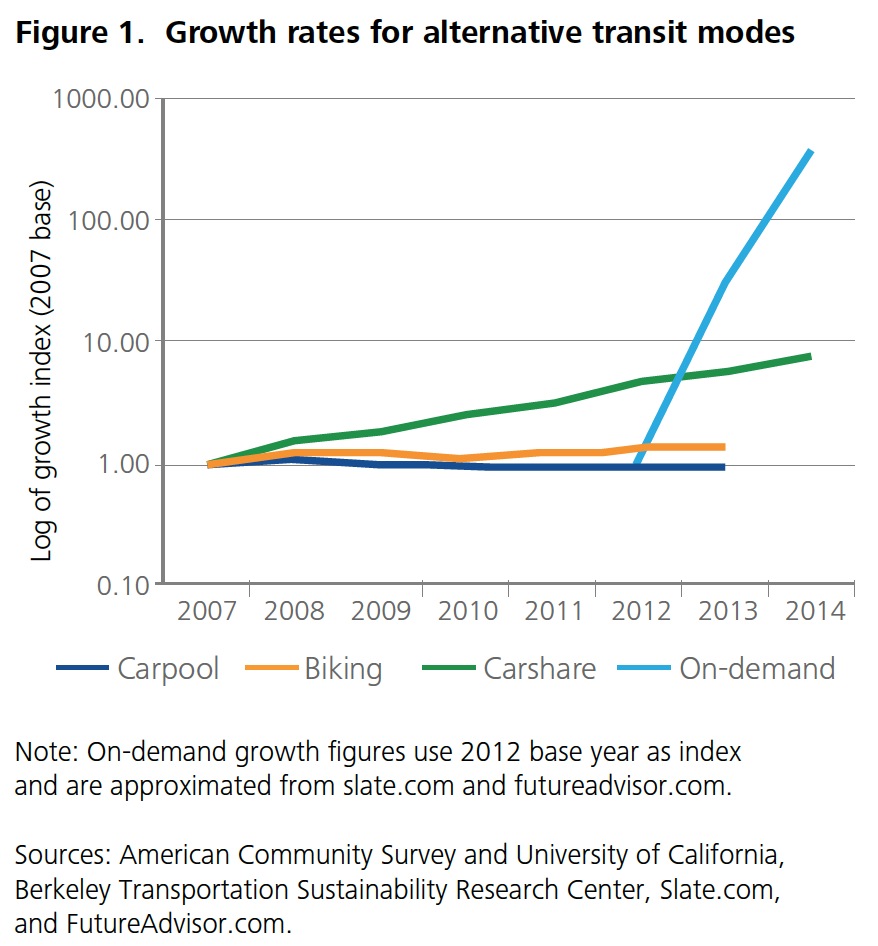DELOITTE UNIVERSITY PRESS
The promise of smart mobility
 NEW business models inspired by the sharing economy and disruptive technologies are ushering in an exciting new age in transportation: the era of smart mobility. The arrival of on-demand ride services like Uber and Lyft, real-time ridesharing services such as Carma and Zimride, carsharing programs such as Zipcar and car2go, bike sharing programs, and thousands of miles of new urban bike lanes are all changing how people get around.
NEW business models inspired by the sharing economy and disruptive technologies are ushering in an exciting new age in transportation: the era of smart mobility. The arrival of on-demand ride services like Uber and Lyft, real-time ridesharing services such as Carma and Zimride, carsharing programs such as Zipcar and car2go, bike sharing programs, and thousands of miles of new urban bike lanes are all changing how people get around.
Commuters no longer need to own a car to have one at their disposal. They don’t have to pre-arrange carpools to share a ride with others headed in the same direction. They needn’t wait for a ride home when it’s pouring down rain and there’s not an empty cab in sight.
For their part, automakers increasingly see themselves as both product manufacturers and mobility services companies. In addition to developing next-generation connected and autonomous vehicles that will improve traffic flows and safety, automakers are investing in a wide swath of new mobility services—everything from carsharing and rental services to multimodal trip-planning apps.
There’s no question that consumers have been the primary beneficiaries of new mobility services. The question facing urban planners is how today’s expanded mobility ecosystem can help advance public policy goals such as encouraging higher productivity and reducing congestion, while bringing related benefits such as fewer traffic accidents, better air quality, and a smaller urban footprint for parking.
Can alternative transportation modes help metropolitan areas reduce traffic congestion without spending tens of billions of dollars on new roads, tunnels, and light rail? And if so, what are the most promising strategies? Which approaches work best in which cities? How can automakers and transportation officials work together to address changing mobility needs?
These are just a few of the questions our analysis attempts to answer.
This study takes a data-driven look at what metropolitan areas can gain from expanded mobility ecosystems. We compare alternative approaches from ridesharing to biking, and explore how governments can focus scarce investment dollars on areas where they can do the most good.
Traffic congestion in America: Grim and getting worse
The need for answers to America’s traffic gridlock problem becomes more acute each year. In much of the nation, traffic congestion has increased to alarming levels, with associated costs estimated at $121 billion, equivalent to slightly more than 1 percent of all annual US personal consumption.
The average American spends about 34 hours every year sitting in traffic. That’s a whopping 5.5 billion hours for all commuters. The economic opportunity cost is staggering: $330 million daily, or about $124 billion every year. If nothing changes, this cost could grow to $186 billion by 2030.
And that’s just the cost to individuals. Every mile we drive costs governments 7.5 cents, and at almost 3 trillion vehicle-miles traveled per year, those miles add up. If you include the cost of congestion, air pollution, or even lost property value near roadways, the total estimated external cost of driving runs between 27 cents and 55 cents per mile.
For decades, governments have tried in vain to develop solutions to address congestion. High-occupancy vehicle (HOV) lanes and costly public transportation networks may have slowed the growth of congestion, but commute times continue to lengthen in America’s urban centers. Estimates suggest that only 15 percent in congestion savings can be achieved even with widespread deployment of such conventional measures to all major freeways.
Clearly, a new approach is needed.
Download full version (PDF): Smart Mobility
About the Deloitte University Press
dupress.com
Deloitte University Press publishes original articles, reports and periodicals that provide insights for businesses, the public sector and NGOs. Our goal is to draw upon research and experience from throughout our professional services organization, and that of coauthors in academia and business, to advance the conversation on a broad spectrum of topics of interest to executives and government leaders.
Tags: Deloitte University Press, HOV, Traffic







 RSS Feed
RSS Feed